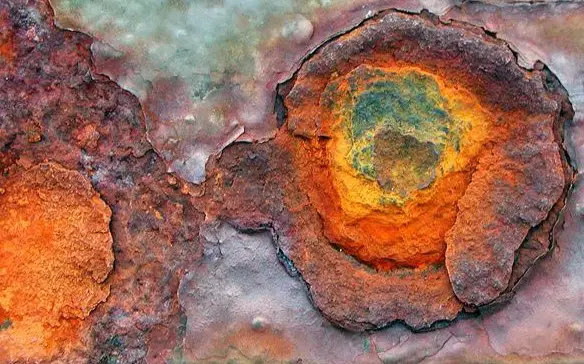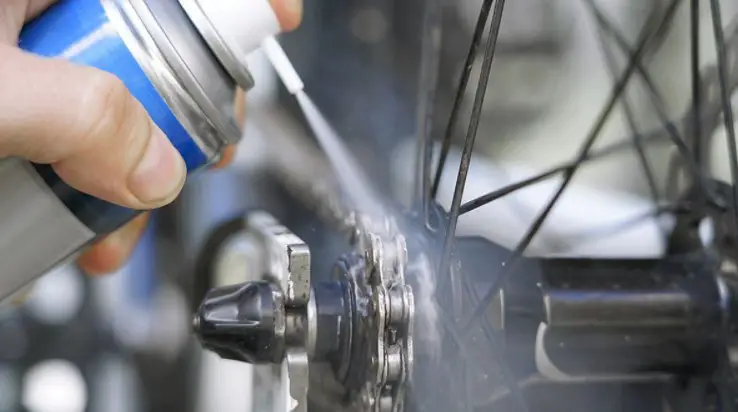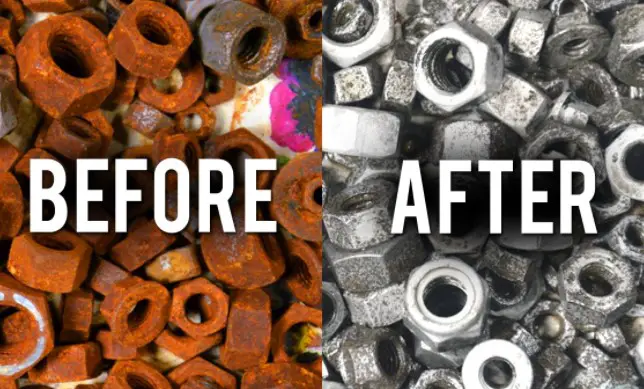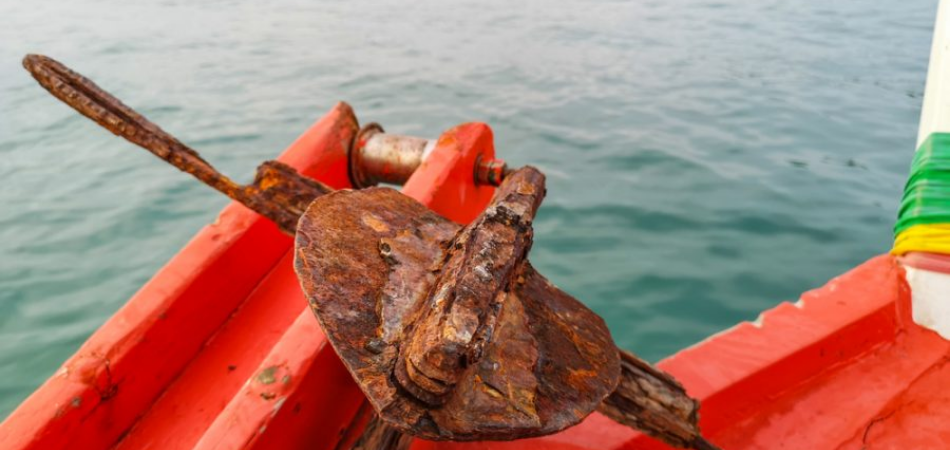A few factors come into play when you are considering what causes rust on metal. It is certainly possible for salt to cause corrosion-related damage to metals and objects, but it’s also true that water can be just as much of a culprit. But does salt cause rust without water?
While salt will always promote rust given the right circumstances, it cannot cause rust itself. Rust is a complicated process that involves both water and oxygen to start. Once created, rust will break down metal into a piece of iron oxide and continue to grow unless dealt with.
Opinions on what causes rust vary widely. The most common belief is that rust happens only when iron or steel is exposed to oxygen and water. According to this theory, salt should not affect whatsoever on rust unless it is mixed with water.
In reality, if metal goes through saltwater, you need to expect it to rust. So, on this page, you will find more information on this topic and how to prevent your metal.
Contents
Rusting In Saltwater Vs Freshwater
Saltwater allows more current to flow than freshwater. This happens because saltwater contains electrolyte solution which contains many dissolved ions which allow free movement of electrons.
Metals and irons rust easier in saltwater than in freshwaters, this is why boat engines that are in the water for so long tend to rust faster than pipe systems at home.
However, it isn’t just about being submerged in the sea which hastens the rusting process. If there is increased water or deliberate salt contact with the metal surface, rusting is possible.
What Other Elements Accelerate Rusting Apart From Salt?
Salt isn’t the only element that quickens rusting, the presence of other elements also causes corrosion. Here are some examples:

Water:
Metals rust when they are in a damp environment because damp air is suitable for corrosion to take place. Little water droplets act as small batteries for ions to move between iron and oxygen.
When irons stay exposed to water, they form hydroxide ions. It is easy for ionized metals to dissolve in water to form rust.
Humidity:
When the environment where the metals or irons stay has a high humidity level, then you should expect rust. That is why it is important to keep your metal and irons dehumidified properly.
Oxygen:
Too much exposure to air can hasten the rusting process aside from trust. O2 reacts quickly with irons especially when other elements like water and salt are presently leading to rust.
Impure iron elements:
Another underrated element that hastens rust is if your irons are made of impure elements. Pure iron has some resistance to rusting, however, when the iron is made from several elements, it gives way to rusting easily.
How To Prevent Metals From Rusting Easily?
There are some tips you can use to prevent metals and irons from rusting quickly:

Using the alloying solution
Rusting refers to the process where certain elements react with the surface of the metal to cause corrosion. A way to prevent this is to mix irons with other highly resistant metals like copper and aluminum to slow the rusting process down.
Galvanizing
You could try to galvanize a metal by coating it with durable zinc material. This option is budget-friendly and offers optimal protection against rust.
Painting
Using paint or Varnish to rub metal surfaces will cause friction between O2 and the iron. This will make the rusting process slower.
Management of the humidity
Controlling the humidity of where the iron is placed is another good solution. When the area has good humidity, you are assured that rusting processes will reduce.
Method Of Removing Rust From Metals
While it is important to protect iron and metals from rust, some will, unfortunately, be corroded, while rusting cannot be reversed, you can remove rust using this solution:

1. Potato
Potatoes are good house staples that come in handy when trying to remove rust from steels. Cut the potato into two halves, and scrub the iron surface with the open part of the potato.
Leave for some time and rinse with water. You will need to do these three or four times to remove all dust particles.
2. Vinegar
This is another natural solution great for removing rust from steel and materials. To apply vinegar, pour it on the rusted iron and leave for 45 minutes.
Then get a thick iron sponge to scrub the affected part slowly. Do these for some minutes for better results.
3. Lime with a salt solution
While salt can hasten the rusting process, when you mix it with lemon juice, it can remove rust quickly. Find a bowl where you can squeeze the lemon inside and add some teaspoon of salt.
Dip the affected rusted steel or Iron inside for an hour. Use a sponge to rub the affected part, till the rust particles fall off.
4. Rust removal chemical product
If your rust surface doesn’t wear off after using the above natural method of removing salt, buy some good rust removal agents like WD-40 and Lime-A-Way, it works like magic.
Frequently Asked Questions
Can saltwater cause rust?
Yes, saltwater can cause rust and sometimes accelerate the process. Saltwater remains an excellent conductor of irons which means its electrolysis reactions hasten corrosion in metals.
Can salt cause rust?
No, salt on its own cannot cause rust because it needs some accompanying elements like Oxygen and water to cause corrosion.
However, salt breaks down the steel protective layer and can quicken the rusting process.
How can salt cause rust?
On iron and steel surfaces, when salt meets water and oxygen, a chemical reaction that creates iron oxide happens. Salt then quickly allows electrons to make the chemical reaction called rust happen.
Does salt cause corrosion to iron?
Yes, salt causes corrosion to iron and ruins it. Using good oil-based paintings can aid in protecting your iron from soil damage.
Conclusion
So, does salt cause rust without water? No, salt cannot cause rust without water, however, it can hasten the process. Salt needs the presence of water and air for rusting to take place.
There are several solutions to prevent rusting from metals, however, if rust happens using several natural and artificial methods of rust removal is recommended.


